Behind-the-scenes photographs show the process of an NHS coronavirus test
This article contains affiliate links. We may earn a small commission on items purchased through this article, but that does not affect our editorial judgement.
The images capture staff fielding calls to book a test right through the point at which a result is given to NHS workers to keep them in work during the crisis.
A photographer given unprecedented access to Nottingham University Hospitals (NUH) NHS Trust has documented staff arriving for a nose and throat swab at the test centre.
Advertisement
Hide AdAdvertisement
Hide AdAn average of 85 staff per day have been tested in recent weeks and all tests are counted at the point they are processed by a lab.
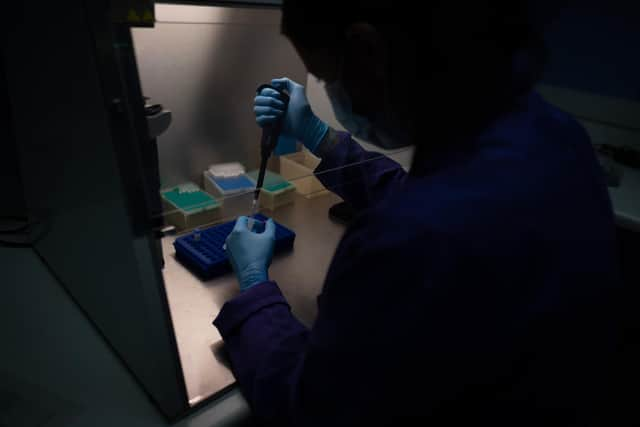

Nose and throat swabs are counted together as one sample.
Join our new coronavirus Facebook group for the latest confirmed news and advice as soon as we get it
The NUH Staff Coronavirus testing service started on April 3 as a combined effort between sexual health services, paediatrics, microbiology and security.
Since then, the centre has tested more than 6,000 staff and their household contacts from NUH and the wider key health community.
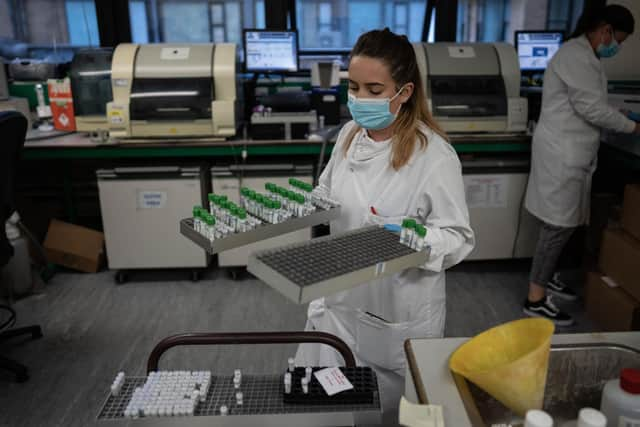

Advertisement
Hide AdAdvertisement
Hide AdThe centre estimates it has saved around 30,000 staff days of staff absence by ensuring that non-infectious healthcare professionals can return to work as quickly as possible.
Staff who require a test book via phone, and then drive in to the designated facility, located the Sexual Health Services car park at City Hospital in Nottingham.
The swab process involves taking a sample from the throat and nose and is done by a trained nurse.
The process takes on average 95 seconds from start to finish.
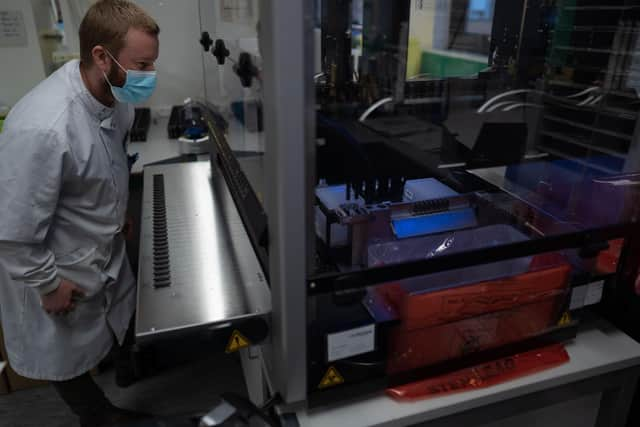

Advertisement
Hide AdAdvertisement
Hide AdThe microbiology lab at NUH then process the samples, with the average time from swab to notification of results is less than 24hrs.
Staff members receive their result by text message, which also includes basic occupational health advice.
Occupational health can provide additional support where needed by phone.
The testing service has also been used to offer patients who are self-isolating prior to urgent surgery a ‘drive-through’ test, since mid-April.
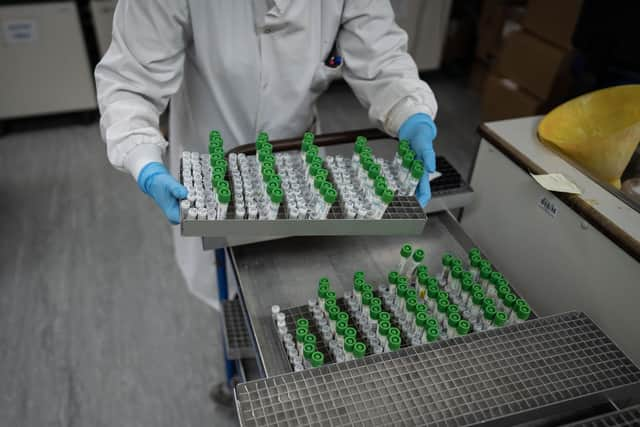

Advertisement
Hide AdAdvertisement
Hide AdThis has allowed safe surgery to go ahead for over 4,000 particularly vulnerable patients, and for them to have pre-operative testing without having to break their isolation.
Anyone who tests positive must self-isolate for a minimum of 10 days from the date of test. If they are then well they can return to work.
A spokeswoman for the Trust said: "They will then get a phone call from one of our team, and during this any contacts will be identified.
"We work with Public Health colleagues to jointly carry out contact tracing, with our team taking on the internal staff contacts and PHE carrying out the majority of community contacts via the national Track and Trace system."
Advertisement
Hide AdAdvertisement
Hide AdIf a staff member has a household contact who tests positive, they need to isolate from 14 days from the date of the onset of the contacts symptoms.
The spokeswoman added: "The ability to test children has been key.
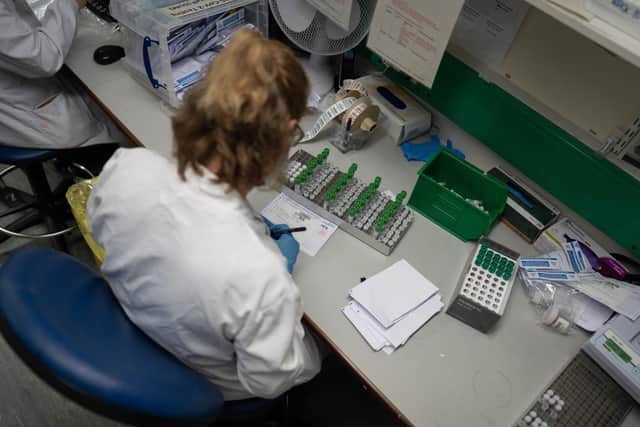

"It is recognised that whilst not painful, it can be an unpleasant experience, and children who attend now get a small ‘superhero’ gift bag on their way out.
"The testing area has been decorated by artwork done by children of staff and those from a local special educational needs school.
Advertisement
Hide AdAdvertisement
Hide Ad"Some of the grown-ups have added their work to the collection too."
-----------------
Support The Yorkshire Post and become a subscriber today.
Your subscription will help us to continue to bring quality news to the people of Yorkshire. In return, you'll see fewer ads on site, get free access to our app and receive exclusive members-only offers.
So, please - if you can - pay for our work. Just £5 per month is the starting point. If you think that which we are trying to achieve is worth more, you can pay us what you think we are worth. By doing so, you will be investing in something that is becoming increasingly rare. Independent journalism that cares less about right and left and more about right and wrong. Journalism you can trust.
Thank you
James Mitchinson
Comment Guidelines
National World encourages reader discussion on our stories. User feedback, insights and back-and-forth exchanges add a rich layer of context to reporting. Please review our Community Guidelines before commenting.